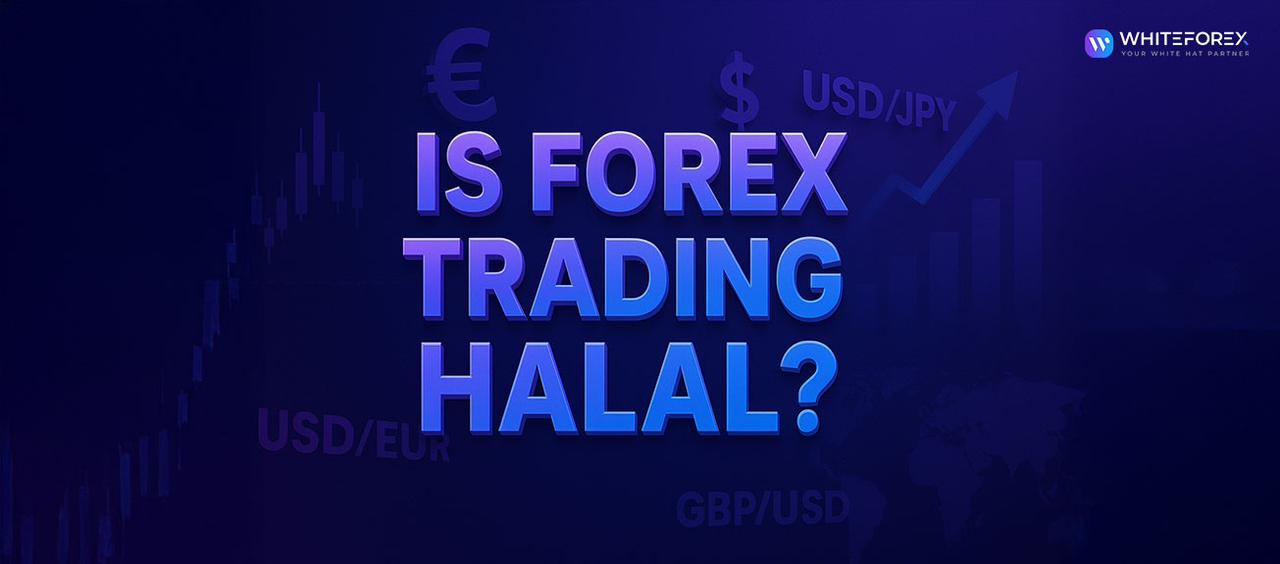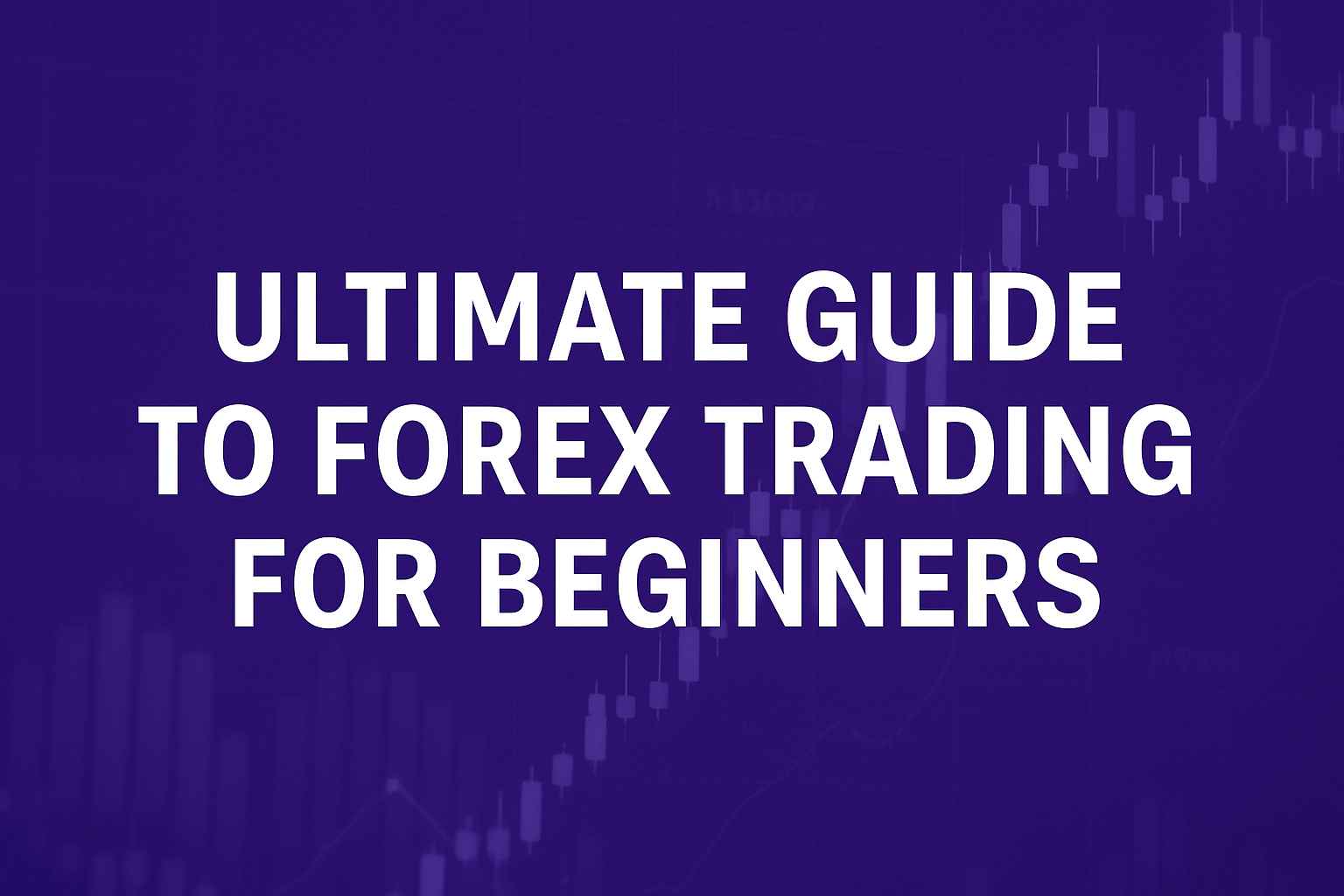Is Forex Trading Halal? An Honest Look Through the Lens of Islamic Finance
Introduction
“Is forex trading halal?”, a question that echoes across countless forums, mosques after Friday prayers, and in living rooms where families discuss money matters. The foreign exchange market, better known as Forex, isn’t a small pond. It’s the world’s largest financial marketplace, with a daily trading volume surpassing $7.5 trillion according to the Bank for International Settlements (2022 report). For Muslims who want to participate, the dilemma isn’t about opportunity; it’s about faith.
Islam lays down clear principles on money. Earning is encouraged, but not at the expense of morality. Interest (riba) is forbidden, gambling (maysir) is off-limits, and excessive uncertainty (gharar) is discouraged. This makes forex trading tricky because while it looks like buying and selling currencies, in reality, it can also resemble speculation. It’s like walking a tightrope, on one side is halal business, and on the other is haram-like gambling.
So, is forex trading halal or haram? The answer isn’t black and white. To understand the full picture, let’s break it down.
What is Forex Trading in Simple Words?
Forex is short for “foreign exchange.” Think of it as a giant digital marketplace where people buy and sell currencies. For example, if you believe the U.S. dollar will strengthen against the Euro, you buy USD and sell EUR. If you’re right, you profit. If you’re wrong, you lose.
Now, not all forex traders are individuals staring at charts. Major players include banks, governments, corporations, and hedge funds. But with online platforms, everyday people from Karachi to Kuala Lumpur can trade too.
Unlike buying gold or land, forex isn’t about physically owning dollars or pounds. It’s contracts, numbers on a screen, and deals that settle electronically. That’s where the Islamic concerns arise.
The Principles of Halal Finance
Before deciding if forex trading is halal, let’s recall the golden rules of Islamic finance:
Riba (Interest): Strictly forbidden. The Qur’an says:
“Allah has permitted trade and has forbidden riba.” (Surah Al-Baqarah 2:275)
Any deal involving guaranteed interest payments is haram.Maysir (Gambling): If your trade is purely speculative, like tossing dice, it’s not allowed. The Qur’an warns:
“Indeed, intoxicants, gambling, [sacrificing on] stone alters [to other than Allah], and divining arrows are but defilement from the work of Satan, so avoid it that you may be successful.” (Surah Al-Ma’idah 5:90)Gharar (Excessive Uncertainty): Trading should be transparent and fair. Unclear contracts or ambiguous conditions fall into gharar, which Islam discourages.
These principles act as a compass. Now, how does forex align with them?
Why Some Scholars Say Forex is Halal
A number of Islamic scholars argue that forex trading can be halal, provided certain conditions are met. Let’s unpack their reasoning.
1. Currency Exchange is Allowed
Exchanging one currency for another (sarf) is permitted in Islam. During the time of the Prophet Muhammad ﷺ, people exchanged dinars for dirhams. The Prophet said:
“Gold for gold, silver for silver… equal for equal, hand to hand. If these types differ, then sell however you like, so long as it is hand to hand.” (Sahih Muslim, Book of Transactions)
This means currency trading is not haram by itself. The key is immediate settlement (spot trading). If you buy EUR/USD and the deal clears instantly, many scholars see no issue.
2. Islamic Forex Accounts Exist
To address riba concerns, brokers introduced swap-free Islamic accounts. Normally, if you hold a position overnight, brokers charge or pay interest (called swap). Islamic accounts remove this, so no riba is involved.
3. Hedging Business Needs
Some Muslims use forex not for speculation, but to hedge against currency risks. For example, a Pakistani exporter dealing with a German company may lock in an exchange rate to avoid losses from fluctuations. This is considered halal because it protects business rather than promotes gambling.
Why Some Scholars Say Forex is Haram
On the other side, many scholars remain cautious and even outright against forex trading. Their arguments are equally weighty.
1. Speculation Resembles Gambling
Most retail traders enter forex to speculate on price movements. It’s a 24/7 game of predictions, where profit often comes at the cost of someone else’s loss. Critics argue this is closer to maysir than genuine trade.
2. Leverage Complicates Things
Brokers offer leverage, sometimes up to 1:500, allowing traders to control large amounts with small capital. While this amplifies gains, it also multiplies risks. For scholars, such risky borrowing with the possibility of huge losses mirrors gambling, making it haram.
3. Delayed Settlement
Even in spot forex, settlement technically takes two days (T+2). Some argue this violates the hadith about “hand to hand” transactions, where currency exchange should be immediate.
4. Hidden Interest and Fees
Even “Islamic accounts” may charge hidden fees disguised as commissions. Some scholars criticize this as a backdoor to riba.
The Middle Ground
So, is forex trading halal or haram? The reality is, it depends on how you trade.
Halal when: You use a swap-free account, avoid leverage, and trade with real intention (like protecting business funds or modest investment).
Haram when: You speculate recklessly, chase quick profits, or engage in interest-based contracts.
In other words, forex can be like a kitchen knife. In the hands of a chef, it makes delicious meals. In the wrong hands, it can cause harm. The tool isn’t haram; the use decides the ruling.
Practical Guide for Muslims Interested in Forex
If you’re a Muslim considering forex trading, here’s how you can navigate the faith-versus-finance crossroad:
1. Choose an Islamic Forex Account
Look for brokers that are certified Shariah-compliant. Ensure they offer swap-free accounts and transparent fee structures.
2. Avoid High Leverage
Leverage may look attractive, but it’s a slippery slope. Stick to low or no leverage to keep trading closer to halal principles.
3. Trade for Need, Not Greed
If forex is part of your business or risk management, it leans towards halal. If it’s just for thrill-seeking profit, it tilts towards haram.
4. Verify With Scholars
Different Islamic councils issue fatwas. For example, the Islamic Fiqh Academy has debated this at length. Always cross-check with scholars you trust.
Real-World Examples
Malaysia: The country is a hub for Islamic finance. The Securities Commission Malaysia has guidelines for Shariah-compliant investments, but retail forex remains under scrutiny.
Middle East: Some brokers are licensed specifically to cater to Muslims with swap-free accounts.
Global Fatwas: Some fatwa boards, like in Kuwait and Saudi Arabia, permit limited forex under conditions, while others advise against it entirely.
The Bigger Picture
Forex trading is tempting. With a smartphone in your pocket, you can join a market that moves trillions of dollars. But temptation is not the same as opportunity. In Islam, wealth isn’t measured by quick gains, but by barakah (blessings).
As the Prophet Muhammad ﷺ said:
“The truthful and trustworthy merchant is associated with the Prophets, the upright, and the martyrs.” (Tirmidhi)
This hadith reminds us: the goal isn’t fast money, but honest money.
Conclusion
So, is forex trading halal? The answer is: it can be halal, but only under strict conditions. It’s halal when done without interest, with clear contracts, low risk, and genuine business intention. It’s haram when it turns into reckless speculation or involves hidden riba.
If you’re serious about entering forex as a Muslim, treat it like a journey. Do your homework, consult scholars, and remember the idiom: “Don’t put all your eggs in one basket.” Diversify, trade responsibly, and prioritize your faith above all.
In the end, a trade that makes you money but costs you your peace with Allah isn’t worth the price.







